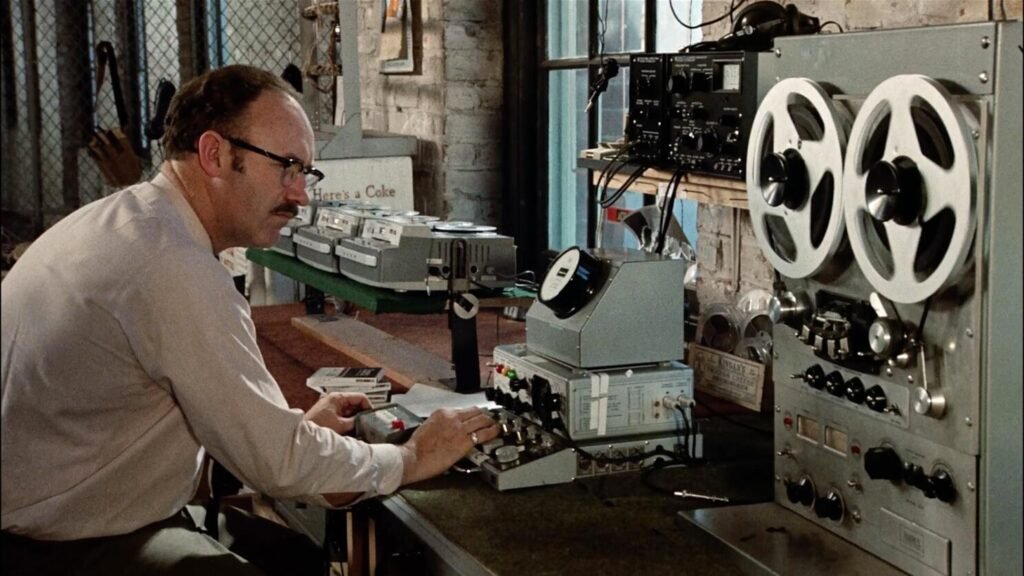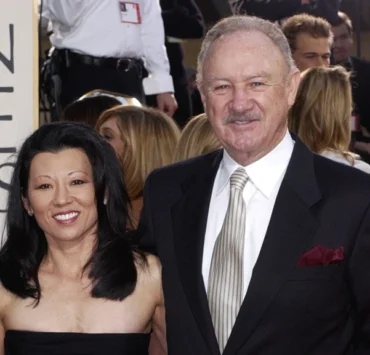
Introduction to Gene Hackman
Gene Hackman is a distinguished American actor and novelist, renowned for his extensive and diverse body of work in the film industry. Born on January 30, 1930, in San Bernardino, California, Hackman’s career spans over five decades, earning him an esteemed reputation as one of the greatest actors of his generation.
He has been celebrated for his compelling performances across various genres, including drama, thriller, and action, showcasing his remarkable versatility.
Gene Hackman made his mark in Hollywood during the late 1960s and quickly became known for his intense and believable portrayals. Notable for his unique ability to immerse himself into complex characters, he often blurs the lines between hero and villain, leading to performances that resonate deeply with audiences. His roles have encompassed everything from a corrupt politician in “The French Connection” to a determined police chief in “Unforgiven,” illustrating his range and depth as a performer.
Throughout his career, Gene Hackman has amassed two Academy Awards, four Golden Globe Awards, and numerous other accolades that underscore his impact on the cinematic landscape.
His acting style has significantly influenced the craft, characterized by a strong emotional connection and an uncanny realism that captivates viewers. In addition to acting, Gene Hackman has successfully ventured into writing, further showcasing his creative talents.
In the years since he stepped back from acting in the late 2000s, Hackman has continued to be appreciated for his contributions to film, often inspiring a new generation of actors and filmmakers. As we explore his top movies, it becomes clear that Gene Hackman’s influence is both profound and enduring, solidifying his status as a cinematic legend.
The French Connection (1971)

One of the pivotal films that established Gene Hackman as a formidable presence in cinema is “The French Connection.” Released in 1971, this crime thriller showcases Hackman in the role of Detective Jimmy “Popeye” Doyle. The plot revolves around Doyle’s relentless pursuit of a French drug lord, who is importing heroin into New York City in a scheme of intricate sophistication.
The film stands out not only for its gripping storyline but also for its innovative approach to the action genre, making it a compelling watch even today.
The French Connection is particularly renowned for its exceptional action sequences, most notably the iconic car chase through the streets of Brooklyn, where Hackman’s Doyle is determinedly chasing a speeding train.
This sequence is recognized as one of the best action scenes in cinematic history, setting a high standard for future films. The raw, gritty portrayal of crime in New York City, combined with the film’s documentary-style realism, left a significant impact on the crime genre as a whole, influencing numerous films that followed.
Gene Hackman’s performance as Popeye Doyle is a cornerstone of the film’s success. His portrayal captures the essence of a no-nonsense cop with a relentless drive to apprehend criminals, yet it also shows the vulnerabilities of his character, making it a nuanced performance. Hackman’s commitment to authenticity is palpable throughout the film, as he immerses himself in the role, portraying a character that is both flawed and determined.
This remarkable performance ultimately earned Hackman the Academy Award for Best Actor, solidifying his status as a leading figure in American cinema and demonstrating the exceptional caliber of talent that he brought to his roles.
Unforgiven (1992)

Gene Hackman’s portrayal of Little Bill Daggett in Clint Eastwood’s 1992 film, “Unforgiven,” stands out as one of the most compelling performances of his illustrious career.
This Western film, which redefined the genre, delves deep into themes of morality, revenge, and the nature of violence, reflecting a critical stance towards the traditional romanticization of the West. Hackman, known for his ability to infuse complexity into his characters, brought an unsettling realism to the role of Little Bill, a lawman who embodies the harsh realities and moral ambiguities of frontier life.
In “Unforgiven,” Little Bill serves as both an antagonist and a figure representing the darker aspects of justice. His character operates within a moral gray area, showcasing the conflict between law and vigilantism. Hackman’s skillful performance captures Daggett’s authoritative presence, as well as the fearsome reputation he has built in the town of Big Whiskey.
The nuanced approach he brought to the character allowed audiences to grapple with their perceptions of right and wrong. Notably, this portrayal earned Hackman an Academy Award for Best Supporting Actor, solidifying his status as one of Hollywood’s premier talents.
The film’s exploration of retribution and its repercussions is intricately connected to Hackman’s character. Little Bill’s rigid enforcement of the law, coupled with his ruthless tendencies, pushes the narrative forward, highlighting the cyclical nature of violence and revenge.
As the story unfolds, Hackman’s performance invites the viewer to question not only Daggett’s motives but also the broader implications of justice in a tumultuous environment. Overall, Hackman’s contribution to “Unforgiven” exemplifies his remarkable range and ability to engage audiences in a thought-provoking dialogue about morality within cinema.
The Conversation (1974)

Directed by Francis Ford Coppola, “The Conversation” is a remarkable film that delves into themes of privacy, surveillance, and the moral dilemmas faced by its protagonist, Harry Caul, portrayed masterfully by Gene Hackman. Caul, a solitary figure in the realm of wiretapping, finds himself entangled in a case that raises profound ethical questions about the nature of his work.
Read: Best Jean-Claude Van Damme Movies: A Look at the Action Star’s Greatest Hits
The film is steeped in a tense and unsettling atmosphere, a testament to Coppola’s directorial prowess and Hackman’s embodying of a complex character fraught with paranoia and introspection.
As a wiretap expert, Hackman’s character captures intimate conversations, but what initially seems like a conventional job evolves into a chilling exploration of voyeurism and the consequences of intrusive surveillance. The film suggests a penetrating commentary on the boundaries of privacy, particularly pertinent in the contemporary age.
Hackman’s performance adds considerable psychological depth to the narrative, showcasing his ability to convey a profound sense of internal conflict. His portrayal of Harry Caul engages audiences, allowing them to empathize with a man who grapples with guilt and isolation as a result of his profession.
The film’s innovative storytelling and Hackman’s compelling performance make it a poignant examination of the ethical implications of technology in personal lives. As the plot unfolds, viewers are invited into caustic dilemmas faced by Caul, offering a glimpse into the psychological toll that his vocation takes on him.
With a gripping narrative complemented by an eerie score, “The Conversation” has etched itself into cinematic history. Gene Hackman’s ability to portray the nuances of a deeply troubled character not only elevates the film’s emotional resonance but also solidifies it as one of the defining movies of his illustrious career.
4. Mississippi Burning (1988)

Gene Hackman delivers a compelling performance as FBI agent Rupert Anderson in the 1988 film “Mississippi Burning,” a gripping drama directed by Alan Parker. The movie is set in the racially charged landscape of the American South during the 1960s, a time when civil rights were under fierce attack.
The narrative revolves around the investigation into the disappearance of civil rights activists, capturing the tension and conflict of that historical period. Hackman’s portrayal of Anderson, a seasoned FBI agent who confronts both systemic racism and local hostility, is pivotal to the film’s impact.
The historical context of “Mississippi Burning” provides a backdrop that enhances Hackman’s performance.
The film not only investigates the events surrounding the investigation but also sheds light on the broader issues of racial discrimination and civil rights in America. Hackman’s character exemplifies the moral complexities of working within a flawed system, which resonates strongly in today’s societal context. His interaction with co-star Willem Dafoe, who plays fellow agent Alan Ward, underscores a partnership that evolves amidst adversity, showcasing the stark contrasts between their characters.
The chemistry between Hackman and Dafoe significantly elevates the film’s narrative, as they navigate the challenges posed by local law enforcement, communities steeped in prejudice, and their own ethical dilemmas.
The effectiveness of their collaboration helps to convey the emotional weight of the investigation, making the film not just a crime drama but also a powerful commentary on the fight for civil rights. “Mississippi Burning” remains a testament to Hackman’s versatility as an actor and marks a crucial point in his extensive film career, further solidifying his legacy in Hollywood.
5. Hoosiers (1986)

Released in 1986, “Hoosiers” is a timeless sports drama that showcases the inspiring journey of a small-town high school basketball team in Indiana. The film is anchored by the powerful performance of Gene Hackman, who portrays Coach Norman Dale.
Hackman’s character is a former college basketball coach who, seeking redemption, takes a coaching position at a struggling high school. Throughout the film, audiences witness his determination to instill discipline and strengthen the bond within the team, emphasizing the concepts of teamwork and resilience.
Read: Top 9 Kickboxing Movies Of All Time
In “Hoosiers,” Hackman’s portrayal of Coach Dale is one of his most memorable performances, capturing the essence of a mentor who believes in the potential of not only his players but also in the transformative power of sport. The film effectively highlights the struggles and triumphs faced by the team, reflecting the broader themes of overcoming adversity and believing in oneself. Hackman’s dynamic interactions with his players create an emotional depth that resonates with viewers, making the struggles of Coach Dale and his team feel both relatable and inspiring.
The film also explores the importance of community support and personal sacrifice, as Coach Dale battles against local skepticism and entrenched rivalries. Hackman’s ability to convey vulnerability and strength simultaneously has solidified his performance in “Hoosiers” as a quintessential representation of a coach in cinema.
The movie has gained a reputation as an enduring classic, often regarded as one of the finest sports films ever made. Its legacy continues with Hackman’s role remaining a touchstone for both aspiring actors and sports enthusiasts alike, capturing the spirit of teamwork that is at the heart of every great story of triumph.
6. Royal Tenenbaums (2001)

“The Royal Tenenbaums,” directed by Wes Anderson, stands out as a quintessential piece in Gene Hackman’s illustrious career. In this film, Hackman portrays the eccentric and often flawed patriarch, Royal Tenenbaum. What makes this film particularly remarkable is its unique narrative style infused with a blend of humor and solemnity, an approach that Anderson has masterfully crafted.
Hackman’s performance is a testament to his ability to navigate complex emotions, embodying a character that is simultaneously laughable and heartbreaking.
Royal Tenenbaum is depicted as a man who has been absent from the lives of his three gifted children, each of whom has found success yet struggles with their own personal issues.
Hackman’s character is self-centered and quirky, yet his innate charm allows the audience to connect with him on an emotional level. This balance of comedy and pathos is where Gene Hackman truly shines, showcasing not just his comedic timing but also his remarkable capacity to evoke sympathy. His portrayal captures the underlying tenderness in a character who often comes off as aloof and detached.
The film’s narrative structure, with its whimsical yet poignant storytelling, provides the perfect backdrop for Hackman’s performance. The dialogue is sharp, and the interactions between Royal and his children reveal layers of complexity that Hackman brings to life.
Through archival photographs and an impressive visual aesthetic filled with vivid colors, “The Royal Tenenbaums” invites viewers into a world where family dynamics are humorously chaotic yet relatable. Gene Hackman’s portrayal of Royal Tenenbaum is memorable and adds depth to a film that continues to resonate with audiences, elevating it to a classic status in American cinema.
Legacy of Gene Hackman
Gene Hackman, a towering figure in cinema, has left an indelible mark on Hollywood through a career characterized by versatility and excellence. Known for his ability to inhabit a diverse array of characters, Hackman has become synonymous with conviction and authenticity.
His work spans several genres, earning him critical acclaim and numerous awards, including two Academy Awards. This remarkable legacy continues to inspire aspiring actors and filmmakers alike.
One of the notable aspects of Gene Hackman’s career is his impressive range. From playing the stoic yet persuasive Lex Luthor in “Superman” to the determined and relentless detective in “The French Connection,” Hackman showcased a breadth of talent that few actors can replicate.
His portrayals reflected a unique ability to evoke deep emotional responses from audiences, establishing him as a cornerstone of American cinema. Even in his retirement, which he announced in the early 2000s, his influence remains palpable.
The decision to retire was not taken lightly, but Hackman aimed to step back at the pinnacle of his career. Rather than fading into obscurity, he chose to leave behind a towering legacy filled with unforgettable performances from both iconic and lesser-known films.
Hackman tempered the film industry’s expectations, showing that the best actors do not need to remain in the spotlight to maintain their influence. His vast body of work has left a lasting impact, inspiring a generation of actors who strive to emulate his authentic style and dedication to craft.
As audiences revisit Gene Hackman’s remarkable filmography, his enduring legacy continues to resonate. From gripping dramas to captivating thrillers, the nuanced performances Hackman delivered serve as benchmarks for aspiring talents. His work reminds us that the essence of filmmaking lies in the storytelling, a sentiment that will undoubtedly echo through the annals of cinematic history.
Conclusion
Gene Hackman’s career is a testament to the art of acting, demonstrating a versatility that few can match in the film industry. Throughout his extensive body of work, Hackman has portrayed a wide array of characters, from lawmen to criminals, showcasing his remarkable ability to embody diverse roles with authenticity and depth. His contributions have significantly shaped the cinematic landscape, establishing him as a true legend in the realm of film.
In reviewing the top six films featuring Gene Hackman, it becomes evident that his performances have not only garnered critical acclaim but have also left an indelible mark on audiences. Movies like “The French Connection” and “Unforgiven” highlight his capability to capture complex emotions, while titles such as “Royal Tenenbaums” showcase his unique flair for humor and drama. Each of these films serves as a brilliant example of Hackman’s talent and the compelling narratives that he helped bring to life.
Beyond his on-screen achievements, Hackman’s influence extends into the broader context of cinema, inspiring both aspiring actors and seasoned filmmakers alike. His dedication to his craft and his willingness to take on challenging roles have paved the way for future generations in the film industry. Therefore, it becomes essential for viewers not only to enjoy his iconic performances but also to recognize the artistry behind them.
In summary, the films of Gene Hackman invite viewers to explore the depths of human emotion, revealing the intricacies of life through his powerful portrayals. By engaging with his cinematic works, audiences can truly appreciate the extraordinary talent that Hackman possesses and celebrate the lasting impact he has made in the world of filmmaking.
Further Reading and Recommendations
As the illustrious career of Gene Hackman has garnered significant attention, those interested in exploring more about his extensive filmography are encouraged to delve into various resources, films, and documentaries that shed light on his remarkable contributions to cinema.
One of the recommended films is “The Conversation,” directed by Francis Ford Coppola, where Hackman’s nuanced performance as a paranoid surveillance expert showcases his unparalleled acting range. This film is a testament to his skill in portraying complex characters, making it a must-watch for any fan.
In addition to his cinematic performances, readers may find it enriching to read Hackman’s autobiography, “Acting as a Craft,” where he reflects on his experiences in Hollywood, sharing insights into his process and the evolution of his career. This candid self-portrait is particularly informative for aspiring actors and film enthusiasts looking to understand the depths of his artistic journey.
Furthermore, there are several documentaries and retrospective programs focused on Hackman’s career that can be beneficial. The documentary “The Last Good Heist” not only features interviews with Hackman but also highlights key moments in film history, offering a broader context of his career during the golden age of filmmaking. For those who prefer visual storytelling, exploring the rich tapestry of Hackman’s roles through compiling video essays available on platforms like YouTube can provide fresh perspectives on his impact in the industry.
As viewers discover these additional resources, it becomes increasingly clear how Gene Hackman’s versatility and dedication have left an indelible mark on cinema. Engaging with the broader spectrum of his work will undoubtedly enhance one’s appreciation of this iconic actor’s legacy, encouraging further exploration into the world of film.
Related posts:
- Top 9 Kickboxing Movies Of All Time
- Joel Madden Reveals His Favorite Moment From Hosting Season 15 of ‘Ink Master’
- What Does Metal As Hell Mean
- Reasons to Choose Minibus Hire for Your Corporate Event
- Vodka vs. Gin: Two Classics, Endless Possibilities
- The Cowboy Effect And The Series Yellowstone’s Cultural Style Shift
What's Your Reaction?
One of my friends once said, I am in love with words and a zoned out poser... well, I will keep it the way it has been said! Besides that you can call me a compulsive poet, wanna-be painter and an amateur photographer















